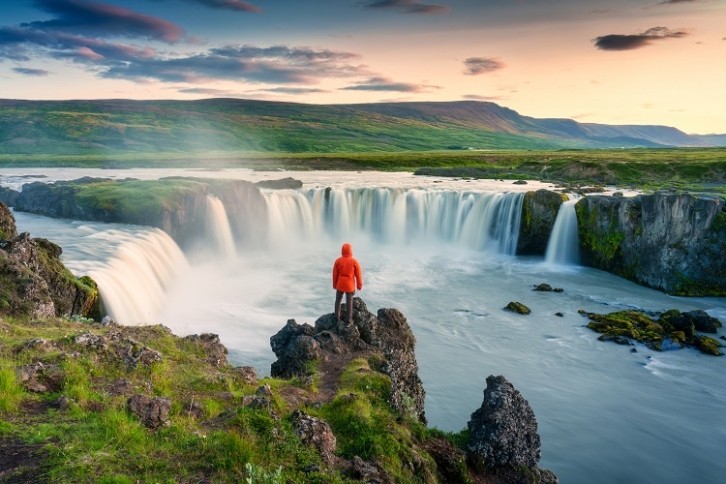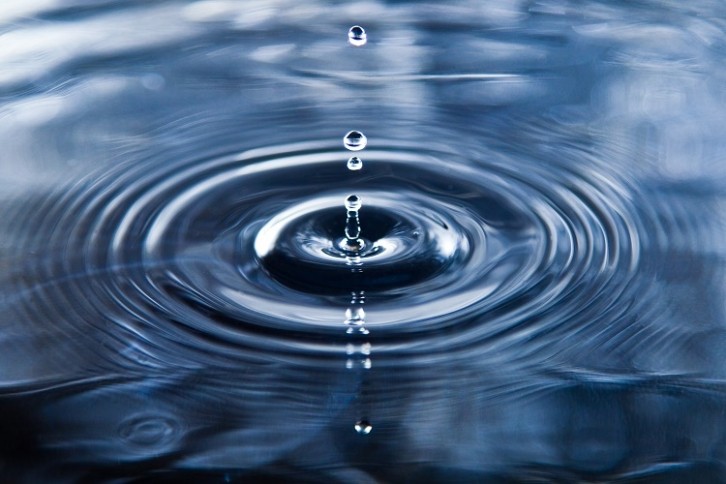A new study examining global freshwater resources has revealed that human actions have significantly altered the planet’s freshwater cycle. So how will these changes impact our water supply and by extension food security?
How is the freshwater cycle changing?
The study observed that the planetary boundary for freshwater change was surpassed by the mid-twentieth century, meaning that since that time, humans have been pushing the earth’s freshwater system beyond stable conditions.
According to the World Wildlife Fund (WWF), “how we treat this invaluable yet undervalued resource will define the future of people, climate, nature, and therefore business.”
What are planetary boundaries?
Planetary boundaries describe the limits the earth can withstand with regards to the impact of human activity. Beyond these limits, the environment may be unable to self-regulate, meaning the earth’s systems will not function as they should.
The findings, published in Nature Water, show that human pressures, such as dam construction, large-scale irrigation and global warming, have altered freshwater resources to such an extent that their capacity to regulate vital ecological and climatic processes is at risk.
The research team calculated monthly streamflow and soil moisture using data from hydrological models which combine all major human impacts on the freshwater cycle. They used the conditions during the pre-industrial period (1661-1860) as a baseline. They then compared the industrial period (1861-2005) against this baseline.
The analysis revealed an increase in the frequency of exceptionally dry or exceptionally wet conditions as a result of deviations in streamflow and soil moisture. Dry and wet deviations have consistently occurred over substantially larger areas since the early twentieth century in comparison to the pre-industrial period. Overall, the global land area experiencing deviations has nearly doubled compared with pre-industrial conditions.
“We found that exceptional conditions are now much more frequent and widespread than before, clearly demonstrating how human actions have changed the state of the global freshwater cycle,” said Vili Virkki, a doctoral researcher at Aalto University and one of the lead authors of the paper.
Because the analysis was done at a high spatial and temporal resolution, the researchers could explore geographical differences in the deviations. Exceptionally dry streamflow and soil moisture conditions became more frequent in many tropical and subtropical regions, while many boreal and temperate regions saw an increase in exceptionally wet conditions, especially in terms of soil moisture. These patterns match changes seen in water availability due to climate change.
“Climate change is likely causing parts of the water cycle to speed up as warming global temperatures increase the rate of evaporation worldwide. More evaporation is causing more precipitation, on average. We are already seeing impacts of higher evaporation and precipitation rates, and the impacts are expected to increase over this century as climate warms,” warns a spokesperson for UCAR Center for Science Education.
The research team also observed more complex patterns in regions with a long history of human land use and agriculture, with the Nile, Indus, and Mississippi river basins experiencing extremely dry streamflow and wet soil moisture conditions, which indicate changes due to irrigation.
“Understanding these dynamics in greater detail could help guide policies to mitigate the resulting harm – but our immediate priority should be to decrease human-driven pressures on freshwater systems, which are vital to life on earth,” added Matti Kummu, senior author of the study.
What are the primary causes of climate change?
- Burning fossil fuels: The burning of fossil fuels, such as oil, gas, and coal, releases carbon dioxide into the earth’s atmosphere, causing the earth to heat up.
- Deforestation: Trees take in carbon dioxide for use in photosynthesis, so the cutting down of trees removes this vital process. Additionally, the carbon dioxide, which is stored within the trees is released back into the atmosphere if the wood is burned.
- Agriculture: Planting crops and rearing animals releases multiple different types of greenhouse gases, including methane from livestock and nitrous oxide from fertilisers, into the atmosphere.
How will the changing freshwater cycle impact water security?
According to figures from the United Nations (UN), approximately two billion people worldwide do not have access to safe drinking water and around half of the world’s population is experiencing severe water scarcity for at least part of the year.
“Only 0.5 per cent of water on earth is useable and available freshwater – and climate change is dangerously affecting that supply. Over the past twenty years, terrestrial water storage – including soil moisture, snow and ice – has dropped at a rate of 1cm per year, with major ramifications for water security,” explains a spokesperson for the UN.
How will the changing freshwater cycle impact food security?
These higher evaporation and precipitation rates are not evenly distributed around the world. As a result of this, some areas will experience heavier than normal precipitation, while others will become prone to drought.
Increased risk of flooding: The effects of flooding can be devastating to farmers, resulting in a loss of crops and a temporary loss of land to graze livestock on. This poses a major thread to food production.
Drought: While some areas are affected by flooding, others are being increasingly affected by drought. This poses an equal threat to food security as crops are failing in the growing regions for certain crops across the world. Just recently, the cost of sugar was reported to be rising sharply, as a result of severe drought across Europe, severely damaging beet crops. Similarly sugar cane production in major producing countries, such as Brazil, has also been impacted by drought.
Climate change has previously been identified as a major threat to the production of commodities such as coffee, with growers warning that rising temperatures and unpredictable rainfall have altered conditions under which coffee plants are grown, leading to decreased yields and increased vulnerability to pests and disease.
Source: Notable shifts beyond pre-industrial streamflow and soil moisture conditions transgress the planetary boundary for freshwater change
Published online: 4 March 2024
DOI: https://www.nature.com/articles/s44221-024-00208-7
Authors: Miina Porkka, Vili Virkki, Lan Wang-Erlandsson et al.


